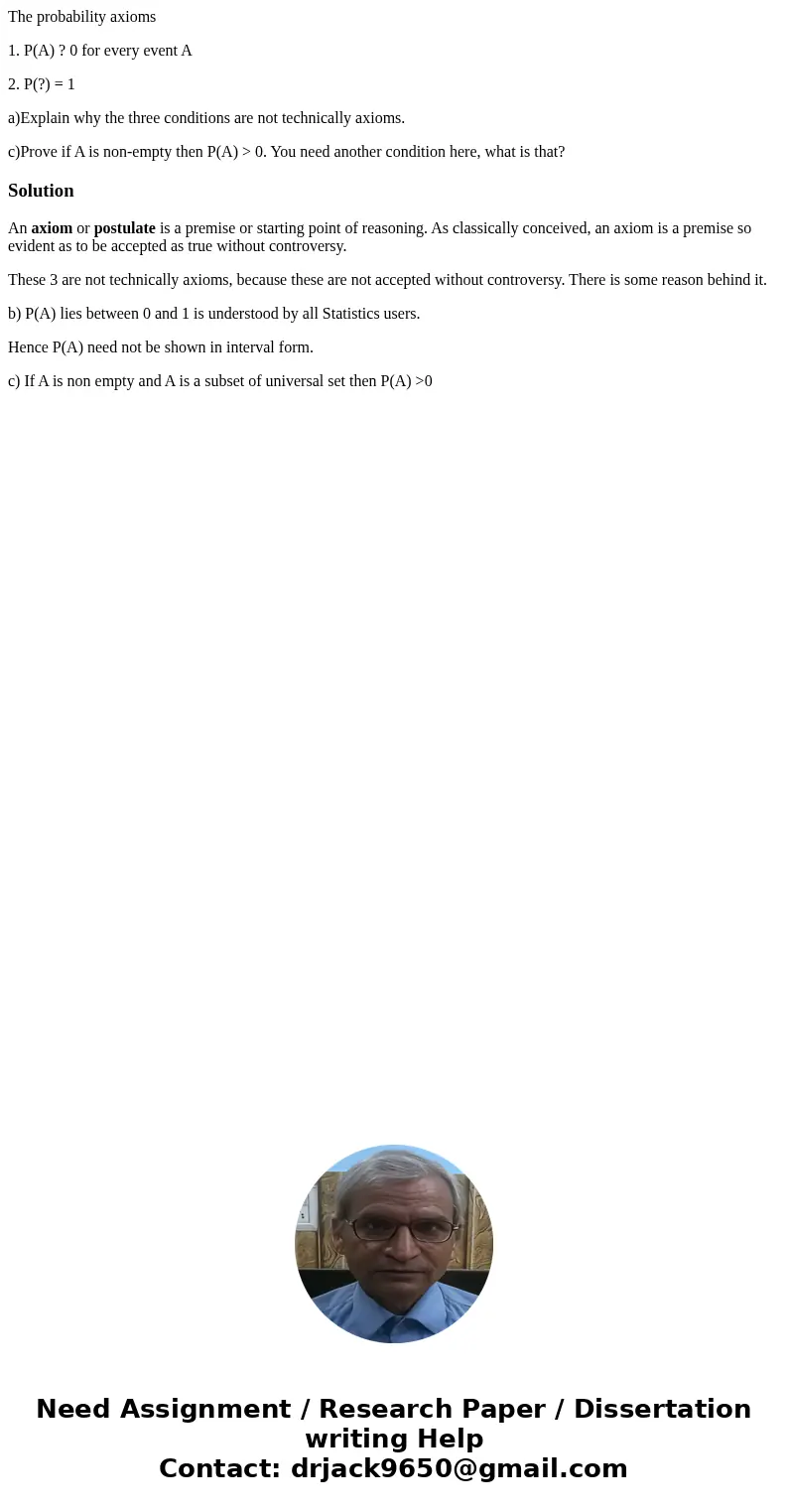The probability axioms 1 PA 0 for every event A 2 P 1 aExp
The probability axioms
1. P(A) ? 0 for every event A
2. P(?) = 1
a)Explain why the three conditions are not technically axioms.
c)Prove if A is non-empty then P(A) > 0. You need another condition here, what is that?
Solution
An axiom or postulate is a premise or starting point of reasoning. As classically conceived, an axiom is a premise so evident as to be accepted as true without controversy.
These 3 are not technically axioms, because these are not accepted without controversy. There is some reason behind it.
b) P(A) lies between 0 and 1 is understood by all Statistics users.
Hence P(A) need not be shown in interval form.
c) If A is non empty and A is a subset of universal set then P(A) >0

 Homework Sourse
Homework Sourse